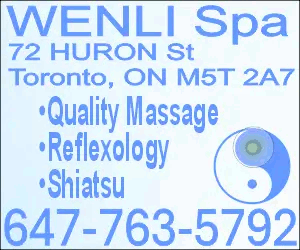
The organization that certifies massage therapists says its certification process can help communities weed out illicit massage parlors.
The California Massage Therapy Council wants cities and counties to require masseuses to obtain certification from the council as a way to root out the “bad apples,” said the group’s CEO, Ahmos Netanel. Cities including Roseville and Citrus Heights are looking to update their ordinances.
The organization made its pitch during a recent training for local officials and law enforcement in Rancho Cordova, part of the nonprofit’s push to clean up the industry.
If a city doesn’t take aggressive action against these massage parlors, they will go to the city that has the weakest ordinance and enforcement and set up shop
Rick McElroy, director of the professional standards division at the California Massage Therapy Council
While the industry group has the authority to “certify” massage therapists under state law, regulating and licensing massage businesses still falls under the purview of local governments. The result is a patchwork of different ordinances and rules, which prostitutes and human traffickers regularly exploit, Netanel said.
“We have an interest in seeing nothing but professional conduct,” he said. “We want to make sure law enforcement is proficient in knowing how to deploy certain tools that we offer to make it easier and faster to go after the bad apples.”
The council believes that its stringent testing, schooling and background check requirements provide a uniform platform that would differentiate those who practice massage to heal and others who practice as a guise for sex.
Nearly 200 jurisdictions require California Massage Therapy Council certification, including Los Angeles, San Jose and San Diego County.
A certificate from the nonprofit costs $150 for two years, but the schooling requirement of 500 hours can cost thousands of dollars in tuition. A certificate holder is allowed to practice massage anywhere in the state as long as they comply with local rules on business permits.
Busting massage parlors for prostitution is no easy feat. It can take countless hours of stakeouts and even undercover stings by officers before practitioners can be arrested and the parlor closed. During the recession, the vice units that hatched such stings were the first to be eliminated, according to Rick McElroy, director of the professional standards division at the California Massage Therapy Council.
“If a city doesn’t take aggressive action against these massage parlors, they will go to the city that has the weakest ordinance and enforcement and set up shop,” said McElroy, a former Los Angeles police officer who spent 28 years handling such cases.
Some cities in the Sacramento region are looking to update their massage ordinances. In Roseville, the City Council last year turned down a proposal by the police department that would require all practitioners to get certification from CAMTC, out of concern it would affect longstanding legal massage businesses that don’t have the funds to obtain such a certificate.
“We hadn’t considered a grandfather-in clause,” said Sgt. Dave Buelow, supervisor of the vice and narcotics enforcement unit at the Roseville Police Department. “That was kind of the big sticking point for some of the older businesses.”
Roseville has 107 city-licensed massage professionals, as well as 59 who are CAMTC-certified, according to the police department. The city of 128,000 people has about 67 massage businesses.
Citrus Heights slapped a temporary ban in 2014 on new massage parlors that is still in effect after complaints from residents about illicit activities skyrocketed. Citrus Heights police in recent years encountered prostitution in more than 10 establishments, according to department spokesman Sgt. Jason Baldwin. Officials are currently creating a new ordinance that would likely require all masseuses to obtain CAMTC certification.
Massage therapists say the council’s certification process has been a godsend. Sara Frazier, campus manager and instructor at the Sacramento branch of the National Holistic Institute, said it was difficult to navigate the red tape prior to CAMTC’s creation by the state Legislature in 2009.
“When every city is left to its own devices, it’s very easy for each city to misconstrue or not understand what we do as a profession,” said Frazier, 34. “Some cities and individuals skew what the massage industry is. For us massage therapists, it is not a sexual industry. It is scientific or medical.”
California Massage Therapy Council officials say their certification process allows for the expedient removal of prostitutes and sexual offenders from practicing massage, since the council can quickly revoke a holder’s certificate if there is unprofessional behavior, regardless of whether a crime occurred.
“If an officer observed an individual going into a massage room with a see-through blouse, while that is not considered to be prostitution, it is considered unprofessional conduct,” Netanel said. “By having a declaration from the officer, we can revoke an individual.”
He added, “We say our certificates are the hardest to get, but the easiest to lose.”
CAMTC certification appears to be catching on. Nearly 200 jurisdictions now require a certificate from the organization as part of the licensing process, including in Los Angeles, San Jose and San Diego County.
While illicit massage parlors are not on the rise in Rancho Cordova, officials are still considering tacking on a CAMTC certification component, said Kerry Simpson, neighborhood services manager.
In the past five years, only one establishment has been shuttered by authorities. During a sweep following the regional training event, Simpson said, code enforcement found only minor violations such as CAMTC-certified therapists operating without a proper city business license.
“They were all squeaky-clean,” Simpson said.
Still, she said, “We like to be ahead of the problem. We don’t want to be the weak link where everyone likes to come.”
Let's block ads! (Why?)











































































































